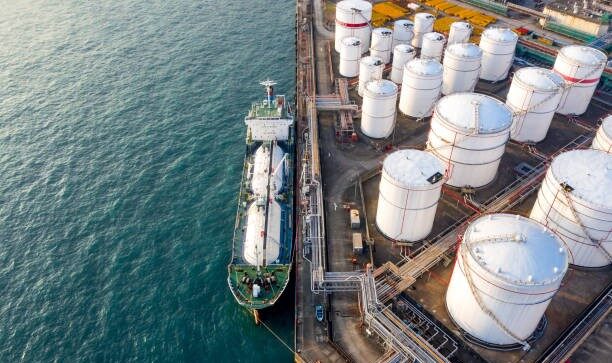THE Central Bank of Nigeria (CBN) has released a total of $1.259 billion to petroleum marketers for the importation of fuel and related products between January and March 2025, latest government data have shown.
News Point Nigeria reports that the disbursement comes amid the ongoing debate over Nigeria’s continued reliance on imported petrol, despite the commencement of large-scale refining by the Dangote Petroleum Refinery.
Fresh figures from the Nigerian Midstream and Downstream Petroleum Regulatory Authority (NMDPRA) reveal that imported petrol accounted for 69% of the 21 billion litres consumed nationwide between August 2024 and the first ten days of October 2025.
This is despite the refinery’s claims of having sufficient capacity to meet local demand and export to other countries.
Between January and March 2025 alone, marketers imported 2.28 billion litres of petrol into the country, a figure considered one of the lowest quarterly import levels in recent years. Analysts say the reduction reflects a gradual shift towards local refining, although importation remains substantial.
Breakdown of CBN forex release for fuel imports during the quarter showed:
Month Forex Released Percentage of Total
January $457.83 million 36.2%
February $283.54 million 22.5%
March $517.55 million 41.3%
Similarly, NMDPRA’s petroleum movement data showed that: 724.5 million litres were imported in January, 760 million litres in February, and 803.7 million litres in March.
The rise in March import volume and forex release signals intensified competition between the Dangote refinery and import-dependent marketers.
The battle for market control in the downstream sector has grown fiercer, with pricing emerging as the deciding factor for retail marketers.
The Publicity Secretary of the Independent Petroleum Marketers Association of Nigeria (IPMAN), Chinedu Ukadike, confirmed that cost remains the sole determinant of where marketers source petrol.
“In this business, pricing is everything,” Ukadike said. “If imported products land cheaper, marketers will buy them. If Dangote offers a lower price, then the refinery becomes the preferred source. Nobody survives by sentiment in this market.”
He noted that fluctuations in international oil prices, foreign exchange rates, and government tax policies often influence the price gap between imported and locally refined products.
Meanwhile, the Major Energies Marketers Association of Nigeria (MEMAN), in its latest Energy Bulletin, reported a further decline in the import parity price of petrol, now estimated at ₦805.46 per litre at prevailing spot rates. The drop reflects shifting global crude prices and exchange rate adjustments.
The development suggests the cost landscape remains fluid, and until local refining stabilizes at scale, marketers are likely to continue switching between importation and domestic supply sources depending on price advantage.







